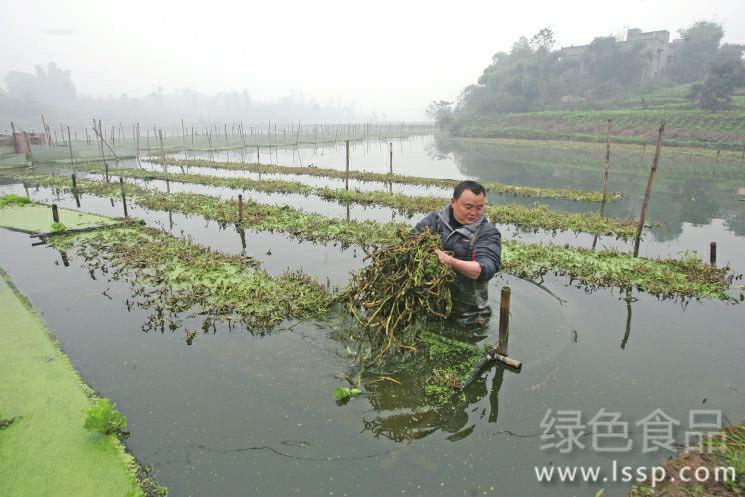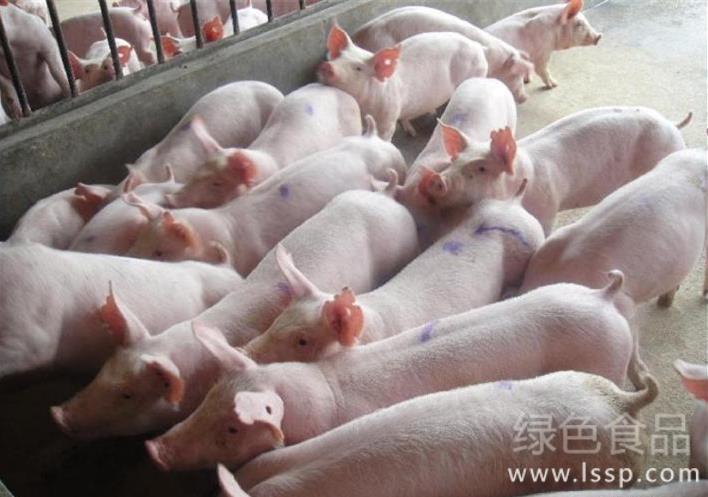Methods and measures for prevention and control of fish diseases are more important than prevention of fish diseases.
"Prevention is more important than cure" is an important policy for the prevention of fish diseases. Fish live in the water, and it is difficult for us to see their activities and feeding. Once the fish get sick, most of the fish lose their appetite after treatment, and the drugs can not enter the fish, so the curative effect is often not ideal. Oral drug treatment for fish diseases is limited to diseased fish that have not yet lost their appetite. In addition, drug treatment for large water surfaces, lakes and reservoirs is still unable to treat. Some fish diseases, such as clonorchiasis and sporozoosis, do not work with drugs once they occur. Therefore, the prevention of fish disease is of great significance.

Clean up fish ponds
Clean up the fish ponds
The condition of fish ponds has a direct impact on the growth and survival of fish. Therefore, improving the environmental conditions of fish ponds is an important link to prevent fish diseases and increase production. Cleaning up fish ponds is one of the effective measures to improve the environmental conditions of fish ponds. Generally speaking, mechanical pond cleaning has the following advantages:
1. Reduce fish diseases. Fish pond cleaning can identify various pathogens, intermediate hosts, snails, clams and moss in the sediment of fish ponds, so as to reduce the occurrence of fish disease.
2. Turn the thin pond into the fat pond. After the fish pond is cleaned, the aeration condition is improved, the mineralization of humus is accelerated, and the organic matter is transformed into nutrients, so as to achieve the purpose of changing the fish pond from thin to fat.
3. Increase the stocking quantity, after removing the silt from the fish pond, the water storage capacity increases, and the stocking quantity increases accordingly.
4. By consolidating the pond dike and increasing the ability to resist risks, the cleared silt can be raised and strengthened, and the leakage can be reduced, which is beneficial to the increase of fish production in fish ponds.
5. increase farmland fertilizer, and the humus soil at the bottom of the pond is a good fertilizer for farmland.
Medicine to clear the pond
There are many kinds of drugs, commonly used are quicklime, bleaching powder; dry pond cleaning: the dosage of quicklime is 100-150 jin / mu, which can be sprinkled dry or dissolved, bleaching powder 10-15 jin / mu, sprinkled in the whole pool after dissolution. Clean the pond with water: calculated according to the water depth of one meter, the dosage of quicklime is 250-300 jin / mu, and the amount of bleaching powder is 20-30 jin / mu. Sprinkling quicklime can not only kill all kinds of pathogens, but also play the role of mediating water quality and indirect fertilization.
2. Strengthen feeding and management
If you are good at using the eight-character intensive culture method, especially the fish farms (households) that do a good job of "water, bait, density, prevention, and management", fish diseases will be reduced or will not occur. Therefore, we must seriously grasp these important links and closely combine breeding and management with the prevention and control of fish diseases in order to reduce or prevent the disease of fish. Ignore or relax these links, even if there are better prevention and treatment drugs and methods, it can not completely solve the problem of fish disease. Feeding and management mainly do the following work:
1. Pond patrol: fish are raised in fish ponds, and water is the external environment for the survival of fish. Due to the influence of biological, physical and chemical factors, it has a very important relationship to the growth and development of fish and their ability to resist diseases. Inspect the fish ponds every morning, noon and evening to grasp the specific conditions of the fish ponds and take timely measures. Pond patrol mainly depends on the activity of fish, the eating condition of fish and the change of water quality. Make a good record of pond patrol, so as to sum up the experience and improve it.
Fish pond feeding
2. Reasonable feeding: the quality of feed and feeding technology are the key factors affecting the high yield of pond fish. According to the different growth stages of fish and fish, the activity of pond fish, season, weather, water temperature, water quality and other conditions, choose bait with reasonable price and quality produced by regular manufacturers, and feed sufficient quantity at an appropriate time and in an appropriate position in the fish pond. This is what is commonly known as the "four determinations" of bait, that is, quality, quantity, timing and positioning.
3. Putting an end to the spread of pathogens: finding the disease in time and preventing the spread and spread of pathogens are indispensable links in the whole feeding and management work. When fish diseases are found, they should be dealt with in time, so that the occurrence and development of fish diseases can be reduced.
Third, according to the season, water temperature, the prevalence of fish disease and other drug prevention, the method is to hang medicine bags or sprinkle in the food market, feeding bait and so on.
- Prev

Although sweet potato is nutritious, there are four taboos for feeding sweet potato properly to pigs.
Although sweet potato is nutritious, there are four taboos for feeding sweet potato properly to pigs.
- Next

Castration techniques of pigs
Pig castration is one of a variety of livestock, poultry and pet castration techniques, it occupies an important position in veterinary surgery, is an indispensable technology for pig production, this paper briefly describes the pig castration technology. The principle and purpose of pig castration the ancients called testes "potential", so the removal of testicles from male animals is also called castration, which has been used today. Of course, the castration of livestock and poultry includes not only male livestock and poultry, but also female livestock and poultry. Castration of livestock and poultry is the removal of the gonads, that is, removal of testicles or ovaries, castration
Related
- On the eggshell is a badge full of pride. British Poultry Egg Market and Consumer observation
- British study: 72% of Britons are willing to buy native eggs raised by insects
- Guidelines for friendly egg production revised the increase of space in chicken sheds can not be forced to change feathers and lay eggs.
- Risk of delay in customs clearance Australia suspends lobster exports to China
- Pig semen-the Vector of virus Transmission (4)
- Pig semen-the Vector of virus Transmission (3)
- Five common causes of difficult control of classical swine fever in clinic and their countermeasures
- Foot-and-mouth disease is the most effective way to prevent it!
- PED is the number one killer of piglets and has to be guarded against in autumn and winter.
- What is "yellow fat pig"? Have you ever heard the pig collector talk about "yellow fat pig"?

